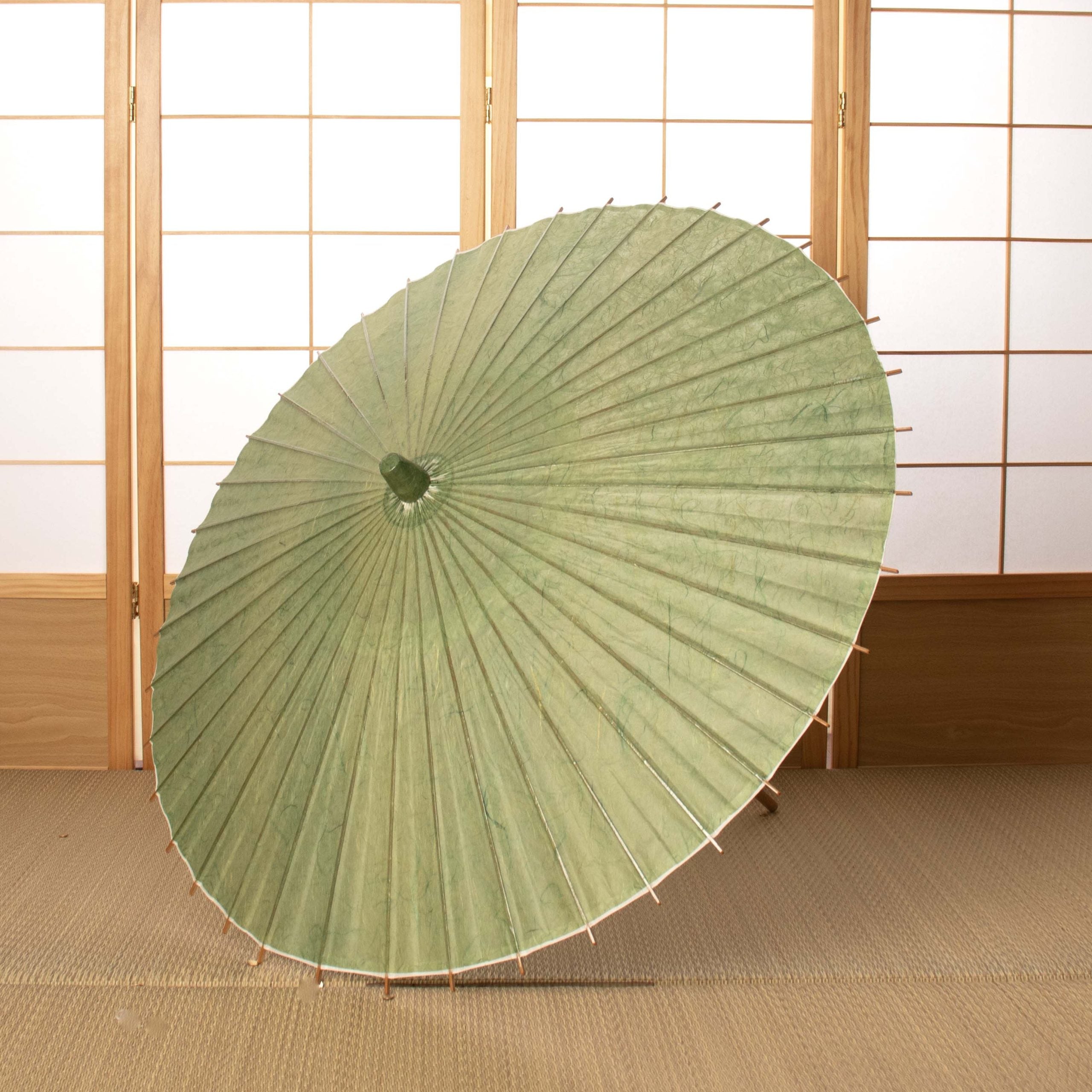
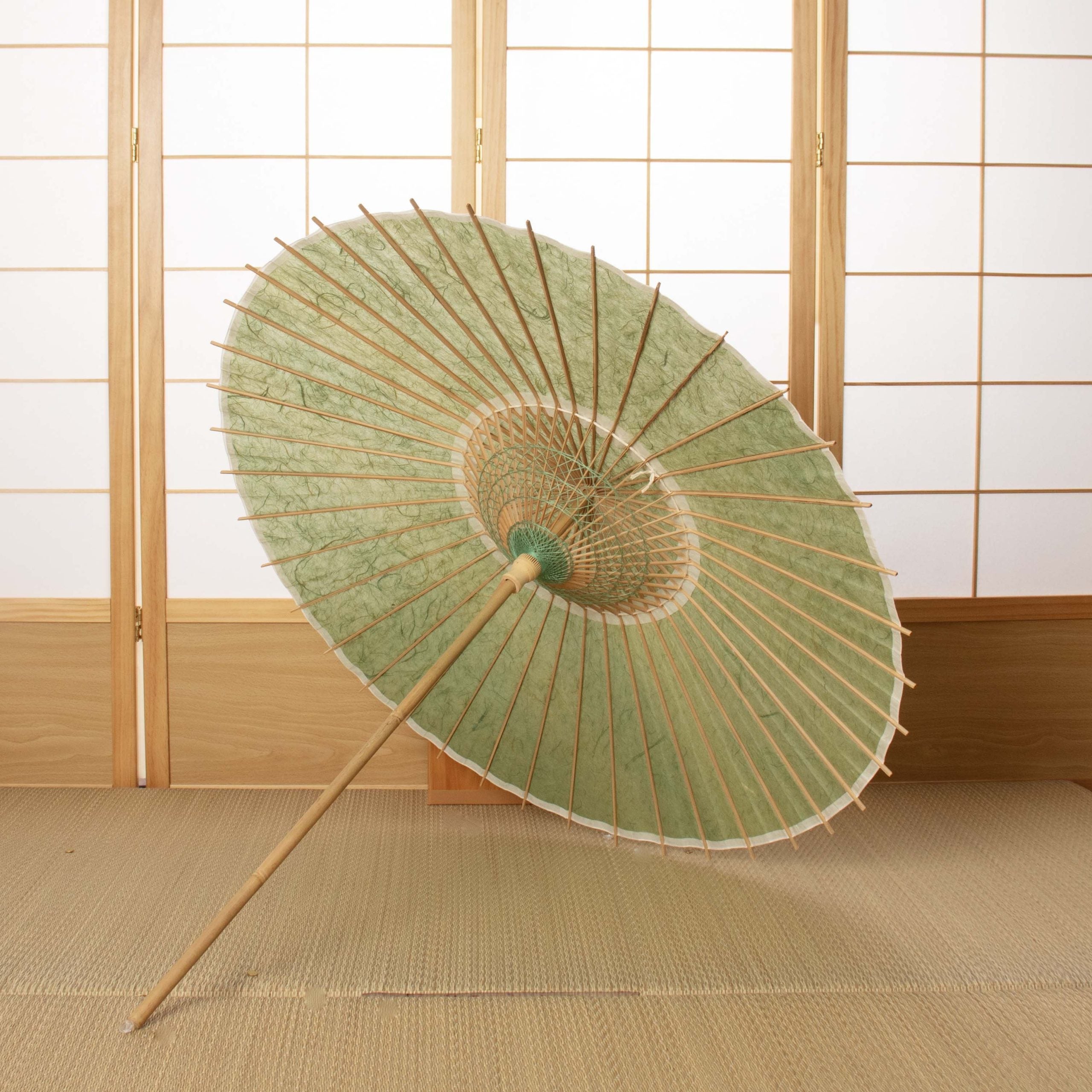
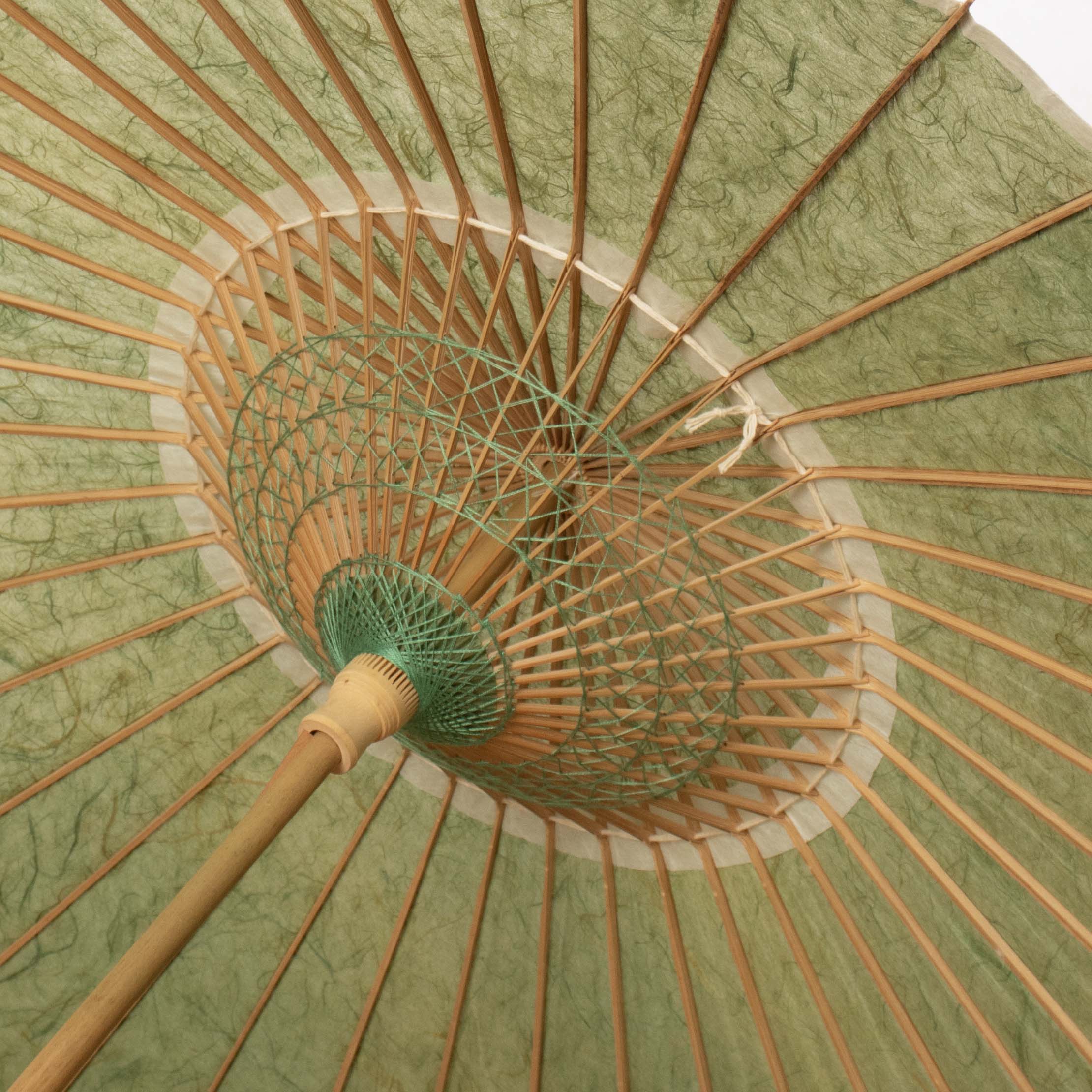
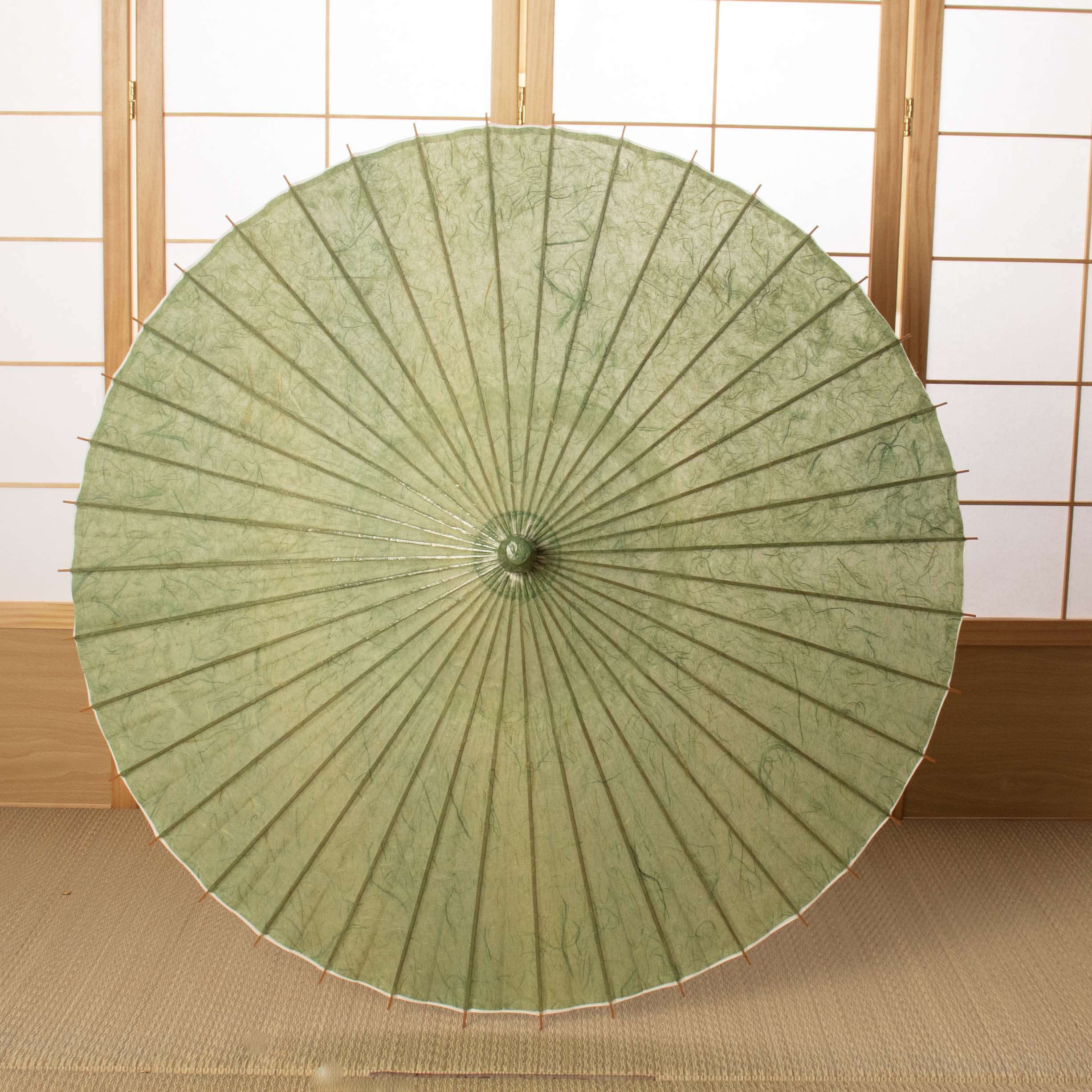
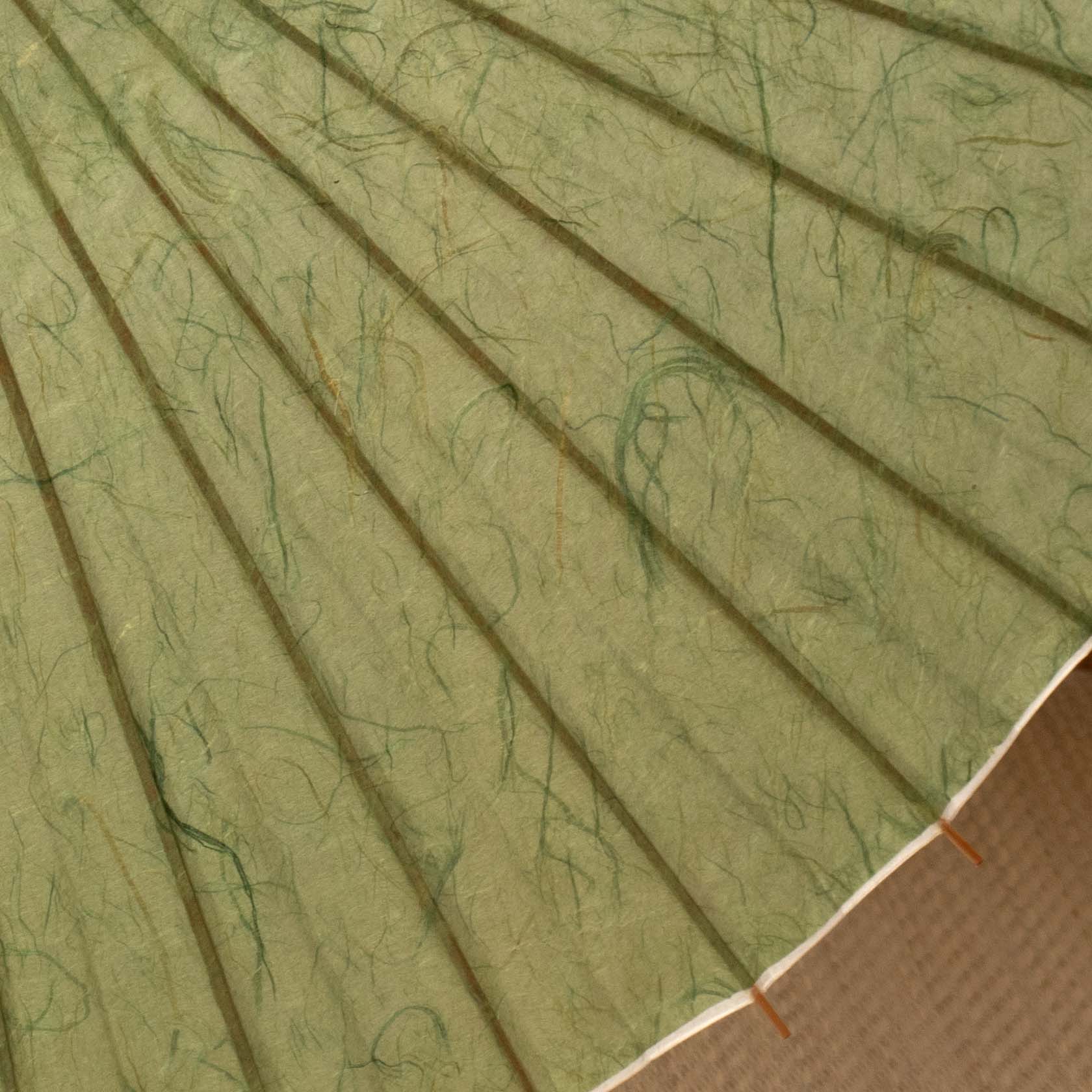
Light Green / Higasa_Specially selected Kurotani Washi
Kyoto ‘Kurotani Washi’ × Kyoto ‘Wagasa shop Tsujikura’.
A traditional craft that has been preserved and nurtured over a long history.
Kurotani Washi, from the paper-making village of Ayabe in Kyoto, is a very rare type of Japanese paper made entirely by hand by craftsmen.
It is used for the restoration of cultural properties because it is strong and long-lasting and can withstand long-term preservation.
The rare Kurotani unryu paper is used to make Tsujikura’s wagasa.
The deep crimson colour of the jenome umbrella is reminiscent of maiko (apprentice geisha).
The washi craftsman said it was very difficult to produce the specified colour.
As Tsujikura hoped, the deep crimson Unryu paper was finally produced.
The parasol was carefully made into a parasol by skilled craftsmen over a long period of time.
The parasol is made from raw materials, using only the finest quality materials.
It is not only gorgeous. We hope that you will feel the long story of how it is made.
Wakakusa is one of the traditional colours of Japan.
The result is a Japanese parasol full of vitality and dynamism, reminiscent of the fresh colours of young grass and leaves that have just sprouted at the beginning of spring.
Each of the charms of the Wagasa – a Wagasa that can be felt with all five senses.
The handle is made of black bamboo, which is smooth and comfortable to hold in the hand.
The paper is made of Kozo (paper mulberry), which shows through when held up to the sun.
The long fibres of kozo (paper mulberry) torn by hand are scattered over the base paper to form a cloud-like pattern, which is called unryu-gami.
The sound of the folded washi separating one by one when the umbrella is opened.
The umbrella has a wooden stopper, instead of metal fittings, which determines the opening of the umbrella.
The sound of the wooden clasp is a pleasant echo.
The best of Kyoto Kurotani Washi (Japanese paper) and Tsujikura Wagasa (Japanese umbrella shop).
This umbrella is made with Washi paper. It is slim and light, the most simple style and easy to use. It is recommended for the first Wagasa. Maiko and Geiko in Kyoto are actually using this type of Wagasa.Material:Japanese traditional paper ‘washi’
Color: Green
Bone: Bamboo
Stretchers: 40
Shaft: Bamboo
Latch: Wood
Length: About 80.5cm (about 31.7inch)
Diameter: About 82cm (about 32.3inch)

Handling Method
How to Use the Wagasa
When you walk carrying the closed umbrella, please grasp the head of the Wagasa, or for Janome please grasp the cord on the head, and for Bangasa please hold the leather strings bound around the head.
How to Open the Wagasa
The Wagasa may be difficult to open due to the waterproof grease on the Washi. Please lightly grasp the bottom of the runner at the bottom inside the umbrella, and slowly and carefully push to the top to open the Wagasa.
About Shipping
Shipping outside Japan differs according to region and weight.
Place the item in your cart, choose the region and the details will become available.
In the case of one Wagasa (2kg including packaging):
¥3,100~ Asia (Korea, Singapore, Thailand, etc.)
Oceania (Australia, New Zealand, etc.)
¥3,500~ North America (USA, Canada, etc.)
Europe (UK, Italy, etc.)
¥5,700~ Europe (Russia, Iceland, etc.)
South America (Argentina, Peru, Brazil, etc.)
Middle East (United Arab Emirates, etc.)
English site payment is by US dollars.
After an order is received, products are shipped in about one week, and are delivered to the customer approximately one week following that.
Japanese Patterned Original Wagasa Bag
For each Japanese umbrella purchased, we will give you an original umbrella bag.
Unfortunately, we cannot accept requests for specific patterns. Thank you for your understanding. (The pattern in the image is an example.)


Overseas Customs & Import Duties
You are responsible for confirming that the product can be lawfully imported to the destination country.
When ordering from Tsujikura Online Shop, the recipient becomes the importer and must comply with all laws and regulations of the destination country.
Orders that are shipped to countries outside of Japan may be subject to import taxes, customs duties and fees levied by the destination country.
The recipient of an international shipment may be subject to such import taxes, customs duties and fees, which are levied once a shipment reaches your country.
Additional charges for customs clearance must be borne by the recipient; Tsujikura has no control over or relation to these charges and cannot predict what they may be.
Customs policies vary widely from country to country; please make sure you contact your local customs office for further information. When customs clearance procedures are required, delays can be caused beyond our original delivery estimates.
Choose options




